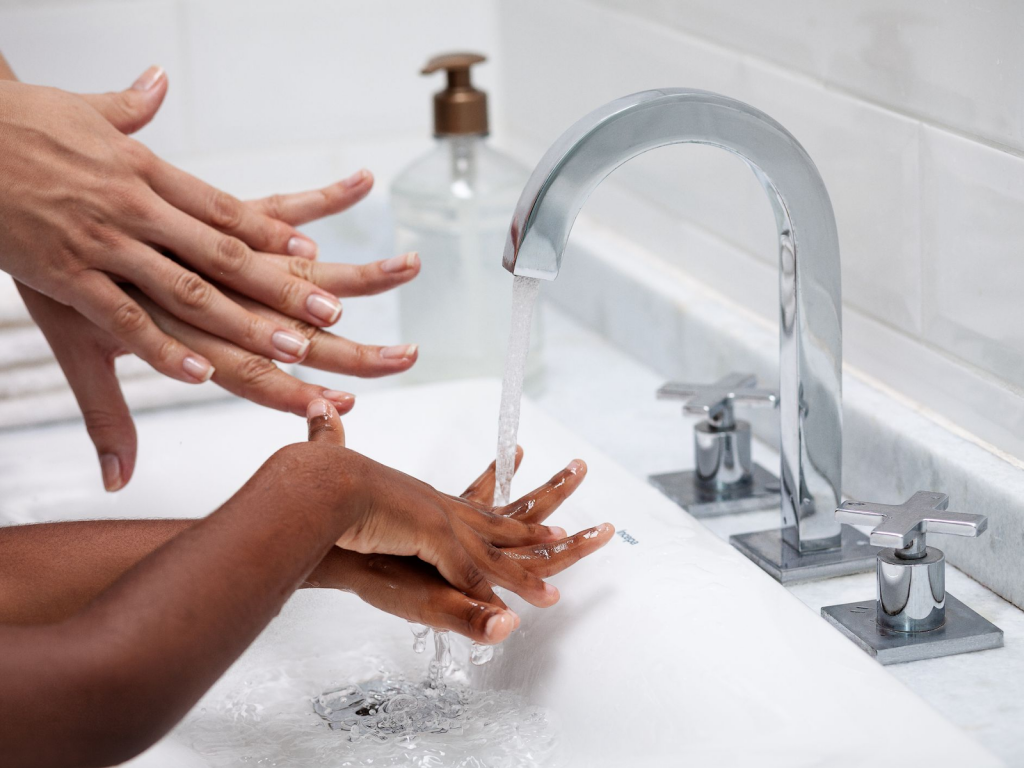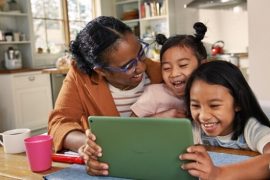By Miracle Nwankwo
I belong to the school of thought that believes in teaching a child cleanliness while they are still young because habits are actions and behaviours that we carry out subconsciously, and are insanely difficult to break.
As a parent, if you desire healthy habits for your children, it is important to start teaching them while they are still very young. The earlier they start learning these habits, the sooner they will begin to consistently display them. Taking advantage of your child’s formative years and teaching them important and very good habits is profitable and rewarding both to you as a parent and to them as children.
Cleanliness is one difficult habit to inculcate in an adult who is not used to it. It will require a totally different environment to help that adult adapt easily to cleanliness, but when a child is used to being clean, when she grows up, irrespective or regardless of her environment it would be difficult for her to break free from cleanliness.
Promoting good and personal hygiene habits does a lot to a child; it shields them from the threat of germs and diseases and protects their overall health.
These may sound difficult considering their age but starting with the simple ones is a good way to start and better than not making any efforts at all. As simple as telling them to always close their mouth whenever they sneeze or cough would go a long way.
According to Dr. Tamisha Jones, Medical Director of Pediatrics, Houston Texas:
“A sneeze can travel up to 100 miles per hour and can spread thousands of germs into the air. So it is a good idea to get your children into the habit of covering their mouth and nose with a tissue when they sneeze, or into the crook of their arm if they can’t reach a tissue fast enough. Since germs are easily transmitted into the body through the mucous membranes within the eyes, nose and mouth, remind them not to touch their eyes or pick their noses.”
It is also advisable to employ creativity, by using other methods apart from speaking. The younger they are, the more fun you may likely want to add in administering your instruction. By doing this, you will be saving yourself from a lot of stress and headache.
“It can take some time for children to develop personal hygiene habits. Setting up signs and reminders around the house about brushing teeth or washing hands, can help them to make personal hygiene a lifelong habit,” says Dr. Tamisha.
There are many ways to go about this that are easy and very helpful. For example, handwashing is another easy habit that you can teach at an early stage. Think of easy and sustainable ways to go about it that will attract your child. I understand that toddlers can be difficult at times, but you as a parent, understands your child better than anyone, and you can make this happen when you employ fun methods.
However, parents must bear in mind that the best way to teach kids is to lead by example. Kids learn by emulation, in fact, you don’t need too many efforts to inculcate a habit in a child when you perform that habit often.
“When parents and teachers don’t keep their areas clean, it can be hard for children and students to understand why they need to keep things neat and tidy. With kids, it is tough to keep a home or a classroom pristine, but if things are put back where they belong most of the time, and the clutter is kept to a minimum, it sets an example for the kids to follow,” says Greg Wiszniewski, founder and owner of Busy Bee Cleaning Services in Manhattan, NYC.
Parents must understand that they can’t give what they do not have, they can’t also instill habits in their children that they themselves do not carry out, this will be very difficult. This is because our environment forms our habit and people make up environments. If a child is born into a home where the parents stay awake in the middle of the night and sleep throughout the day, the child may grow up sleeping that way that it might become difficult for that child to adopt another sleep time in the same environment. It will require a change of environment which may even be difficult from the onset to change that habit.
The family is the immediate environment of a child and as parents, it is easier to still cleanliness in your children by being clean and keeping the home clean always.
Lastly, if you are thinking of waiting until they are much older or when puberty is around the corner, you might be setting yourself up for more work and fight. It is easier to teach a toddler something new than trying to change the mindset of preteen or teenager from something she is used to. She might think you are being difficult or you don’t love her. Don’t postpone the hygiene education start on time and save yourself from lots of trouble and drama between you and your child in future.
In conclusion, hygiene education is also one of the rights of a child from her parent, kids deserve to be thought cleanliness by their parent so that they can give back to the society and contribute to making the world a better place. Cleanliness is profitable for both parents and children. Train up a child in the way that she should go and when she is old she won’t depart from it.
Happy Parenting!





Comments are closed.